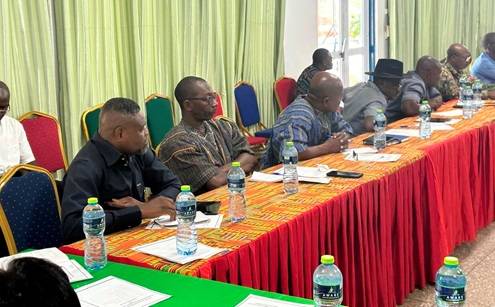The West African Examination Council (WAEC) has raised an urgent call for all stakeholders in the education sector to collaborate and address the growing concern of exam malpractices that threaten the credibility of the council's certificates. Despite the council's ongoing efforts to mitigate such practices, the rate of exam malpractices continues to increase, resulting in the cancellation of entire results for some candidates.
During a recent stakeholders' meeting held in Wa, Upper West Region, Daniel Nii Dodoo, the Head of Humanities at WAEC, shared alarming statistics that reflect the severity of the issue. In 2020 alone, WAEC withheld the results of 3,235 candidates, while more than 10,000 subject results were cancelled, and 510 candidates had their entire results annulled. The situation worsened in the subsequent years, with 568,153 subject results being withheld in 2021 and 12,560 subject results being cancelled. The trend continued in 2022, with 532,891 subject results withheld and 38,693 results cancelled. In total, the council cancelled the results of 463 candidates last year.
This rising number of exam malpractices poses significant risks not only to the integrity of WAEC certificates but also to the broader educational system in Ghana. The practice undermines the trust that students, parents, and educators have in the examination process, while creating a demoralising environment for honest students. In some instances, the widespread nature of these malpractices has the potential to spark social unrest.
The meeting brought together key education stakeholders, including district directors of education, representatives from the Ghana National Association of Teachers (GNAT), the Conference of Heads of Assisted Secondary Schools (CHASS), Parent-Teacher Associations (PTAs), and officials from security agencies and mission schools. Several participants at the meeting pointed to external pressures as contributing factors to the rise in exam malpractices. Some claimed that school managements were under pressure from PTAs to improve school performance and rankings, leading them to condone dishonest practices among students. Others accused political figures of interfering with school administration and influencing heads of schools to overlook exam malpractices to justify educational policies.
Razak Abdul Korah, the Upper West Regional Director of Education, expressed his deep concern over the growing trend of exam malpractices in the region. He urged staff of the Ghana Education Service (GES) to refrain from engaging in such unethical practices and warned that any reports of wrongdoing would be escalated to the Director-General of Education.
Naa Seidu Tisalinbile II, the Paramount Chief of Dorimon and a retired educationist, chaired the meeting and pointed to the lack of effective supervision and the government's policy of mass promotion as factors contributing to the increase in exam malpractices. He emphasised that students who had not performed adequately in previous classes were being promoted to higher levels, creating an environment in which cheating became a viable option to advance.
As the call for action intensifies, the hope is that a unified approach from all stakeholders will restore the integrity of the examination process and ensure that the future of education in Ghana remains secure. WAEC's efforts to tackle this issue continue to depend on collaboration and the commitment of all parties involved to uphold the highest standards of fairness and academic excellence.




No comments yet
Be the first to share your thoughts!